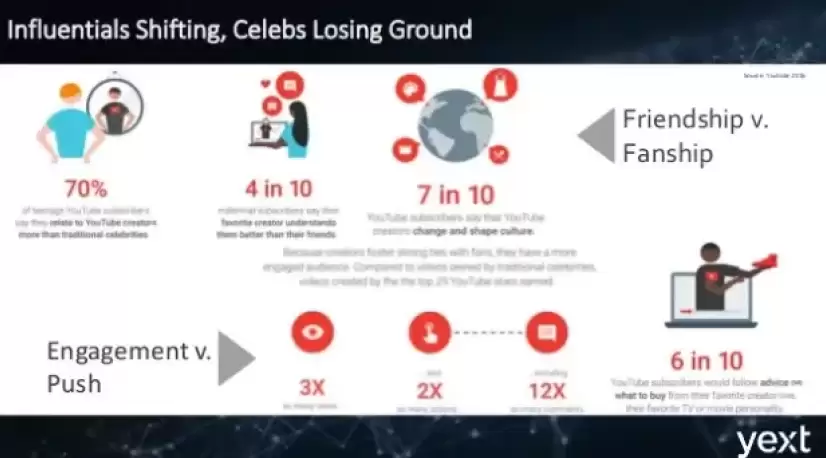State of Search 2017 in Dallas, Texas was hosted by Gilley’s, an awesome honky tonk and event space that was filled with some of the most prominent speakers in SEO & PPC. The conference kicked off with Dr. P of Moz and closed out with Duane Forrester of Yext, with a number of excellent speakers in between. The speakers covered a wide range of topics in varying depth. Each provided excellent insights that, quite honestly, got our team pumped up with some great ideas and perspectives.
In writing my recap & reflections, I didn’t want to do any individual presentation a disservice. Each of these presentations will be available through the State of Search 2017 website, so do yourself a favor and check it out. When the slide decks are released this blog post will be updated to reflect that.
There were a number of recurring themes throughout the conference, and I wanted to distill them down to a few insights to get you started. Below are my reflections on State of Search 2017.
Key Themes from State of Search 2017
Structured Data
Structured data, or Schema Markup, is no longer a fun micro advantage, rather, a critical component to ranking and to creating actionable insights in analytics. Google and other search engines rely on Structured Data to understand the relationship of your website, your products, your team, and those searching for it. It’s also the critical component to ranking in position 0, covered later. Moreover, Martha van Berkel of Schema App gave an excellent presentation on some of the less obvious advantages of Schema Markup. Her talk centered on connecting the dots from all aspects of your website to build and control your brand’s knowledge graph. She then took a deep dive in how businesses can use these all of this structured information for their own analytics by using the tags we’re creating for search engines as custom dimensions in Google Analytics. After all, we’re providing exceptional detail to search engines, so why not use that information to further understand how users interact with our sites at a more granular level than what URLs are most frequently visited?

Automation
The key to automation is to reduce the burden of rote tasks. Things that have to be done frequently (automated SQRs, data analysis, bid adjustments, etc.) are ripe for this. See to a client, the value we provide as experts is the ability to implement automation that allows small or repetitive tasks to be taken care of by a machine, freeing us up to more heavily focus on the strategy and tactics that make our work invaluable. Having more time to focus on strategy means that we’re also able to compound our client work by focusing on a greater number of high impact tasks, given that we’re no longer being burdened by rote work. The former Googler Dan Gilbert of BrainLabs pointed out that we’re consistently working across hundreds of data points every single day, and asks the question: Who do you think is better equipped to pull insights across that large of a spectrum. A human? Or a machine? I’ll give you a hint: it’s not the meat bag.
Cross-Channel Communications
A unified strategy will always be more successful than siloing departments. Silos mean that strategies are fragmented, and knowledge is kept separate. Working as a team to develop a strategy that supports both sides allows us to do better work for our clients, not just because we're aligned in our efforts, but also in our understandings of the clients we have, what they want, and how we're going to make that happen. In his presentation, John Leo Weber of Geek Powered Studios highlighted some of the problems that develop when agencies are not sharing their knowledge while working to the same goal, as well as solutions to prevent that from occurring. John also provided some interesting tactics that agencies can implement to actually take advantage of cross channel marketing.
Voice Search
One tweet that I saw post conference states, "Voice Search is now, AI is later.” Voice Search is here to stay. It will only become more critical.
Optimizing for this means that not only do we need to catch users at different parts of the journey, but that we also need to actually understand how voice works.
Where are these devices pulling their information? What sort of information do people actually want when they ask their phone or device a question? Finally, how do we optimize this? Many different speakers at the conference provided many different tactics, but at the end of the day, the theme was the same: Providing answers to consumer questions is providing value to potentially happy customers. This means that we have to be ready to meet customers at different parts of their buying process. In other words, "Due to voice search, businesses are being forced to cater content specifically for relevant queries.” To do this, capture the reallllllly long tail queries. Dig through your reports for anything that sounds conversational and build content that provides detailed answers.
Local SEO
This will continue to be a battlefield, and one that gets more intense as things go. Filtration will kill a business, but there are a few ways that it can be solved. Kind of. Proximity will always matter a very significant amount, but reviews, proper categorizing & citations, evaluating competition, grabbing snippets, capturing intent, and being active in the community are all ways that we can ensure our clients retain their visibility. The single most critical component to this, however, is garnering real reviews and notoriety from local businesses through digital PR. No matter how well optimized the site is, we know that reviews from a variety of sources will sway consumers more than anything we can say on a website. During a “Get Real or Go Home” session on local SEO hosted by Zeph Snapp, Joy Hawkins, Greg Gifford, and Gyi Tsakalakis provided some excellent insights and strategies to control Google My Business spam, as well as some insights into how voice search is impacting Local SEO, and some exceptional link building strategies.
Shift in Influencers

We already know that reviews have a massive impact on local SEO, but it doesn’t really stop there because reviews aren’t just in one place. Certainly Google My Business, Facebook, Yelp, and general product reviews matter, but the internet is much bigger place than that. Individuals aren’t always searching in just one place, either. Duane Forrester brought up several data points from YouTube that indicate the influencers in an individual's life are starting to shift. In his closing keynote, he states that 70% of teenage YouTube subscribers say they related to YouTube celebrities rather than traditional celebrities, and it doesn’t stop there. Four in 10 say their favorite creator understands them better than their friends. In fact, seven in 10 YouTube subscribers have indicated that YouTube creators are directly driving changes and reshaping culture. To follow up on this, YouTube’s data indicates that six in 10 individuals would rather follow advice on what to buy from their favorite creator instead of their favorite TV or movie personality, and more shocking; than their own family members and friends.
So what does this mean for marketers? It means we need to be nimble and aware that the times are a changin’. If we know that individuals are getting tremendous value out of their favorite YouTube channels, then it means that we have to interface directly with these channels and make sure our clients are visible in an organic way, as well as through relevant audience advertising on YouTube. And it’s not just YouTube. As marketers, we need to be aware of who our audience trusts and how to be found there.
Position 0
During his opening Keynote, Dr. P focused on a handful of potential threats to SEO, and none of those are scarier than the rise of content caching and curation, or how Google is taking your traffic away. These days it’s amazing how much you can do without ever leaving Google. For instance, it’s now possible to look up a movie summary, find where it’s playing, buy tickets, then get directions to the theater all without leaving Google. This will be a problem as we move forward. Google is caching and curating the content that they want and will always prefer their own sources as opposed to yours. This means, unfortunately, we have to play into their game and provide as much structured data as possible so that Google can manipulate and display it to their users as it wants. Not doing so means that we’re not actually playing Google’s game anymore, and they’re not really fans of that. This means it’s no longer a game of ranking in position one, below four ads. It’s about being the first result. Period.
Looking to the Future of Search
There were a number of excellent speakers that provided excellent insights on the state of search now and where it’s headed. It’s no longer enough to have an AdWords campaign and optimized website. The internet is going to become much more competitive and much smaller as Google begins to capture more and more traffic. But that’s okay. Through structured markup we can glean insights in new ways, allowing us to focus and think past Google and target the things that customers are most interested in. With automation, we’re able to get more time back in our days and focus on bigger picture ideas. With the rise of voice search, we’re able to expand the points of contact that our clients have with their users by meeting in more stages of the buying process than before. By aligning our knowledge, analysts from all sides of SEM are able to work together to develop complex strategies that cannot be replaced by automation. Finally, by really honing in on our audience and who they trust, we can begin to meet our customers where they get the most of their information – from creators they trust.
So are you looking forward to the future? Because we sure are, and thanks to State of Search not only do we know where we’re going, but we know how to get there.
Finally, I’d like to say thank you to the Dallas/Fort Worth Search Engine Marketing Association for hosting State of Search this year, as well as thank you to all of the excellent speakers that stopped to answer our questions. We’re looking forward to attending next year, and we hope to see you all there again!
Have any additional State of Search 2017 big takeaways or thoughts? Leave a comment below or Tweet to us at @workshopmktg or to the original author at @TheWarySEO.
Ready to learn more about our award winning digital marketing services?